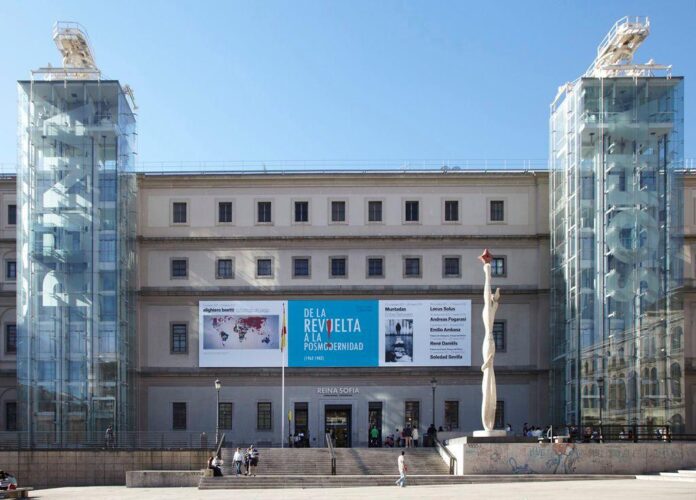The resignation of Manuel Borja-Villel, the veteran director of Reina Sofia in Madrid, who stepped down from his position in January amid a targeted right-wing media campaign against him, is the latest case in a disturbing new pattern to beset museums across Europe, leading museum directors say.
The ability of museums to act autonomously and independently is being newly threatened by dramatically increasingly levels of political interference, according to senior figures working for the International Council of Museums (ICOM).
Leading this argument is Bart De Baere, the director of the Museum van Hedendaagse Kunst Antwerpen in Antwerp, Belgium, and the chair of the International Committee for Museums and Collections of Modern Art (CIMAM) Museum Watch Committee, during the committee’s annual conference which was held at the Es Baluard Museu d’Art Contemporani in Palma, Spain, in November 2022.
“Museum professionals are increasingly having to deal with critical situations that undermine their ability to operate to international standards of best practice,” De Baere says an in interview.
Borja-Villel’s resignation follows the high-profile sacking of directors like Jaroslaw Suchan, who ran the Lodz Museum of Art in Poland until April 2022 before being sacked by the Polish government, and Alistair Hudson, who left the Whitworth Art Gallery in Manchester, England, amid heightened political pressure, in February 2022. De Baere also references the intervention launched by the former culture secretary, Oliver Dowden, who refused to reappoint trustee Aminul Hoque, an academic at Goldsmiths, University of London, known for her work relating to decolonisation theory, to the board of Royal Greenwich Museums in 2022, as well as the appointment of Zewditu Gebreyohanes, a known right-wing activist, as a trustee of the Victoria & Albert Museum, who was appointed by the former UK prime minister Boris Johnson in August last year.
These seemingly disparate stories add up to a “more and more risky environment of increasing political interference in museum management,” De Baere tells The Art Newspaper. Each event should be regarded as a “spectacular moment of crisis” for the museum sector as a whole, De Baere says.
But detecting political interference is not always a straightforward task, De Baere recognises. Knowing how best to respond and resist what can be subtle and opaque forms of obtrusion in the autonomy of a museum can also be challenging.
“These cases were related to frictions or outright ruptures in the relation between senior staff in institutions and the boards, administrations and political representatives governing them,” De Baere says. “Founding bodies obviously are entitled to a profound impact, but this impact should be embedded in codes and guidelines.”
The best response, De Baere proposes, is to agree on a set of internationally recognised protocols that can be relied upon as “best practice”.
“The growing vulnerabilities museums face” justifies the need for a renewed era of proactive governance on behalf of ICOM, which should be guided by a new set of “unified ethical clauses” designed to “protect and support museums and their staff in times of crisis”, De Baere says. “Good governance can only be upheld by clear agreements.”
De Baere and his colleagues on CIMAM’s Museum Watch Committee are not alone. Protection against such examples of political interference will also be top of the agenda this weekend at an ICOM-organised conference titled Management of Museums and Monuments, which opens on 10 February at the Monastery of Arouca in Portugal.
In the UK, meanwhile, Nicholas Serota, the director of Arts Council England, launched a new programme titled “Transforming Governance” at the Governance Now conference in Birmingham on 8 February. “There is a need to respond to changing circumstances,” in terms of the way museums are funded and overseen in the UK and beyond, Serota said. “We need to transform governance of our museums to help improve their oversight.”
In response to this confluence of voices, the International Committee for Museum Management (INTERCOM), a subsidiary of ICOM, has agreed to review ICOM’s Ethical Code for Museums. They are due to publish their findings in the coming months. In August 2022, ICOM also revised its definition of a museum.
As a tool published alongside INTERCOM’s newly reviewed Ethical Code, De Baere proposes a new set of “ethical clauses of governance”, designed to guard against political interference. He argues that ICOM and other museum organisations, CIMAM included, should play an “expanded role” in the governance of museums. “The concept of participatory governance” should de rigueur across the museum community, he says. “An embedded set of ethical clauses would create greater strength and solidarity among museum professionals.”
The suggested protocols would outline the responsibilities of museum directors in maintaining the independence and integrity of their institutions, and provide guidance on how to respond to attempts at political interference.
In May 2022, De Baere and his co-authors published the Museum Watch Management Project, a study conducted by CIMAM and INTERCOM which sets out why a new era of international co-operation, overseen by a newly empowered governmental body, is needed to counter such a growing threat, often from populist governments intent on restricting the curatorial independence of museums across the world.
“The core of the problem is often a lack of clarity in governance matters, which exposes individual museums to arbitrary influences from outside,” De Baere says. “All of these clauses may sound obvious, but what if politicians are simply of bad will?”

























